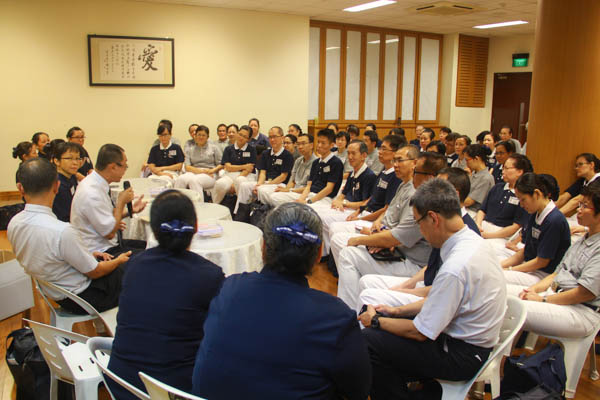
DB Schenker collaborated with Tzu-Chi Foundation (Singapore) to organise a CSR activity for the company’s annual employee meeting.
In a bid to raise awareness of the importance of social responsibility and environmental sustainability, DB Schenker collaborated with Tzu-Chi Foundation (Singapore) and held a Corporate Social Responsibility (CSR) activity. Through sharing, skits and educational booths, Tzu Chi volunteers introduced the ‘5Rs’ concept to DB Schenker’s employees. It was heartening for the volunteers to see that some employees already had the habit of bringing their own reusable cutlery.
During lunch, scrumptious vegetarian food was provided but without disposable cutlery. Instead, employees were given reusable cutleries to lead them to reduce their usage of disposables.
This is just one of the many initiatives by the company to inculcate in employees the importance of conserving the environment. DB Schenker has placed many recycle bins and posters around their premises and set up the DB Schenker Upcycling Hub, a communal area with furniture made from upcycled products. The Upcycling Hub earned them the SG Mark recognition, indicating DB Schenker management’s commitment to promoting environmental sustainability.

Logistics company DB Schenker’s emphasis on sustainability culminated in the Upcycling Hub, which earned them the SG Mark.
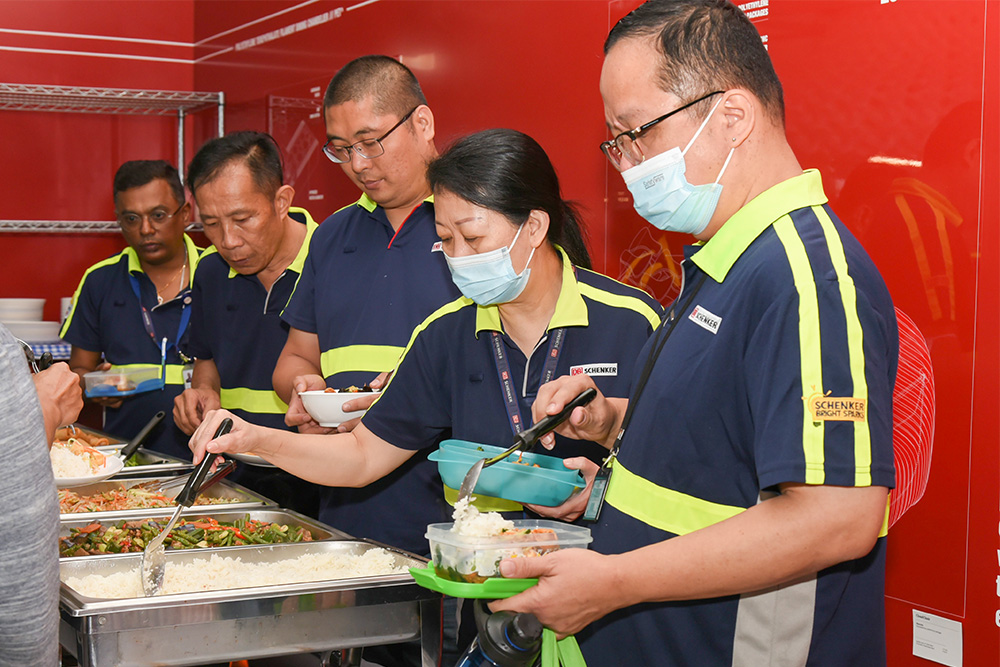
Without disposable cutleries, employees have to use their own cutlery or the reusable cutleries provided by the organiser.
Commenting on the event, DB Schenker’s Assistant General Manager, Mr Yee Cheng Foong, said that reducing our carbon footprint begins with changing the small habits we have, such as bringing our cutlery. Furthermore, he elaborated that in the past, change was implemented through a top-down approach but was not necessarily sustainable, as the employees have to resonate with the shift. In the case of recycling, if employees agree with the rationale of doing it, the changes in habits would naturally come, and more people would be influenced to do the same.
To conserve the environment, some tools are still needed. Ms Rachel Tang, DB Schenker’s Logistic Assistant, mentioned that the company gifted each employee a set of reusable cutlery, and other company partners would also gift these cutlery sets during festive seasons. This made her realise that using her cutlery was not too troublesome and was, in fact more economical. Therefore, she started using these cutlery sets in her daily routine for eco reasons.
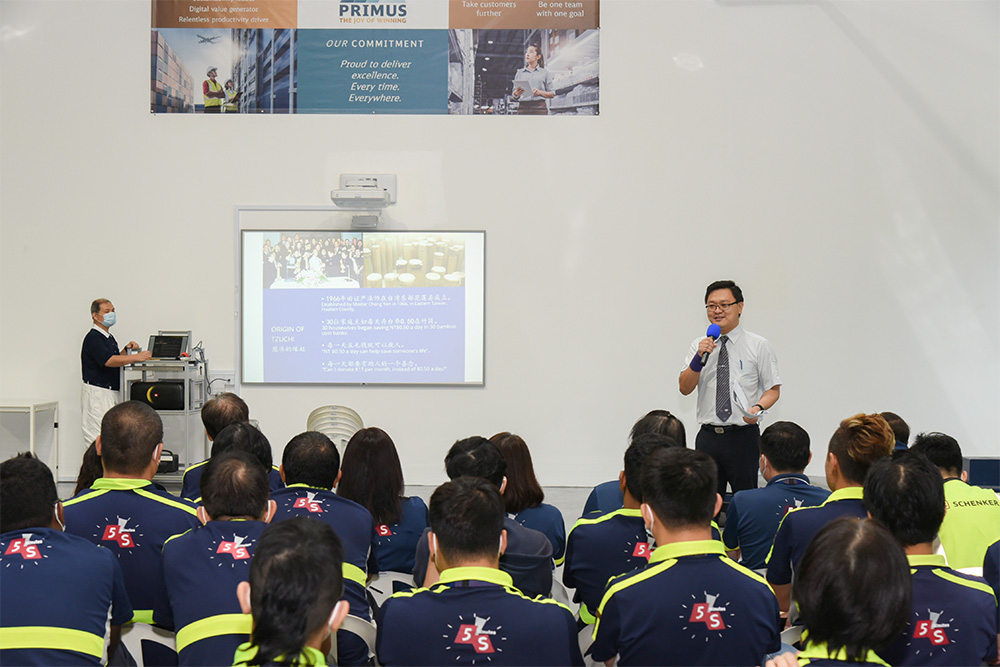
More than 20 Tzu Chi volunteers have conscientiously prepared for this CSR activity in collaboration with DB Schenker. Volunteer Lim Chee Wah is seen sharing Tzu Chi’s story with 60 DB Schenker employees, with another 60 attending virtually.
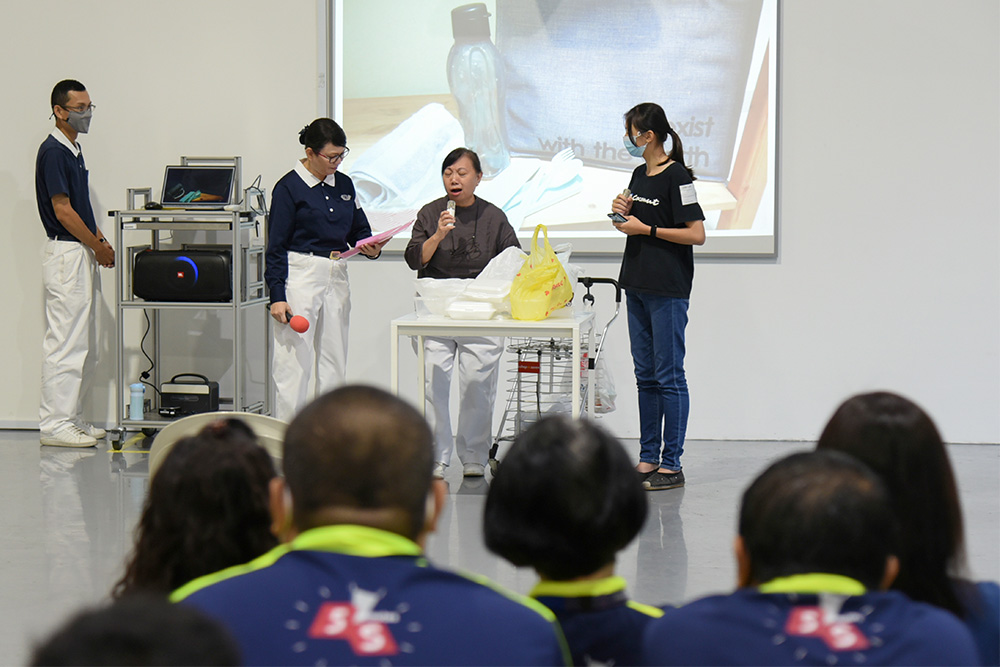
Through a skit, Tzu Chi volunteers try to convey the importance of individuals reducing their carbon footprints and share the ‘5Rs’ concept, namely Refuse, Reduce, Reuse, Recycle and Repair.
Charitable giving and adopting environmentally sustainable habits were themes of the CSR activity. Tzu Chi volunteers passionately conveyed the ideals of “small money can do great charity” and “purity at source” through skits, posters, videos and experience sharing. Additionally, the volunteers set up booths relating to Jing Si humanistic culture, Healthier Me 21-Day Challenge, environmental protection, and Bamboo Bank Era, for interested employees to enquire further.
This outreach activity by Tzu Chi was set up with the help of DB Schenker’s Executive, Ms Sharon Sia, with the aim of promoting environmental sustainability and the importance of inspiring and inculcating kindness through small actions.
Ms Sia shared that blue-collar workers work overtime on a regular basis, and staying in the same physical work environment may cause one to be overwhelmed with work. She hopes that everyone would be able to forge their own work-life balance and realise that there are other valuable things worth doing outside of work, such as helping the less privileged in Singapore.
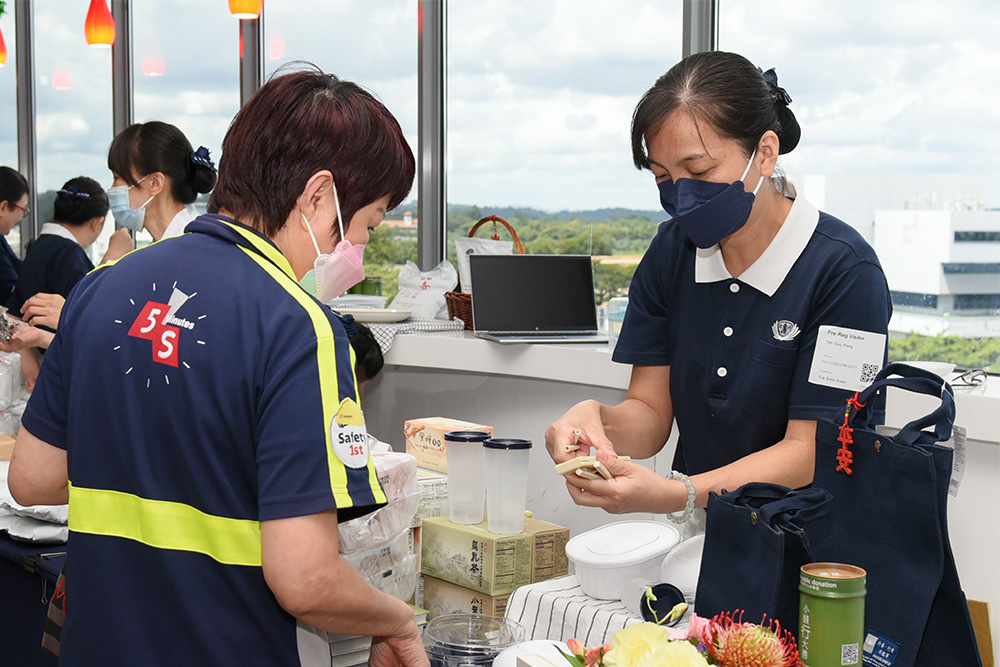
At the Jing Si humanistic culture booth, Tzu Chi volunteers are seen sharing about the five key items to reduce the usage of disposables - a reusable cup, a bowl, a pair of chopsticks, a handkerchief, and a tote bag.
Upon hearing the story of the Bamboo Bank Era from Tzu Chi volunteers, DB Schenker’s Supervisor, Mr Chen Cheng proactively approached the Bamboo Bank Era booth, donated all his spare change, and took a small bamboo coin bank with him. He explained that he appreciated the fact that even 50 cents can be of help to someone else and wanted to play a part. He smiled and pointed to his colleague beside him, elaborating that a drink would cost him more than 50 cents, and 50 cents daily amounts to just 15 dollars a month, which is a sum that most people can donate to help someone in need.
After the event, the Head of Tzu Chi Volunteer Development Department, Mr Beh Keng Hua, expressed that Tzu Chi has been proactively collaborating with companies to promote social responsibility. He is elated to see companies’ CSR initiatives that lead employees to help the underprivileged groups in society. As a result, not only does the company and its employees benefit, but it also promotes the movement of doing good in community.
Furthermore, he shares that CSR initiatives can boost a company’s image, strengthen its core values, and foster a sense of belonging among employees, thereby reducing attrition rates. More importantly, employees are able to cleanse their hearts while contributing back to society.
To Mr Yee, change doesn’t happen overnight, as habits need time to cultivate. Although stakeholders like himself need to continuously nudge people in the long journey towards change, he hopes that the employees would go forth to be environmentally friendly and charitable even in their daily lives or with their families.
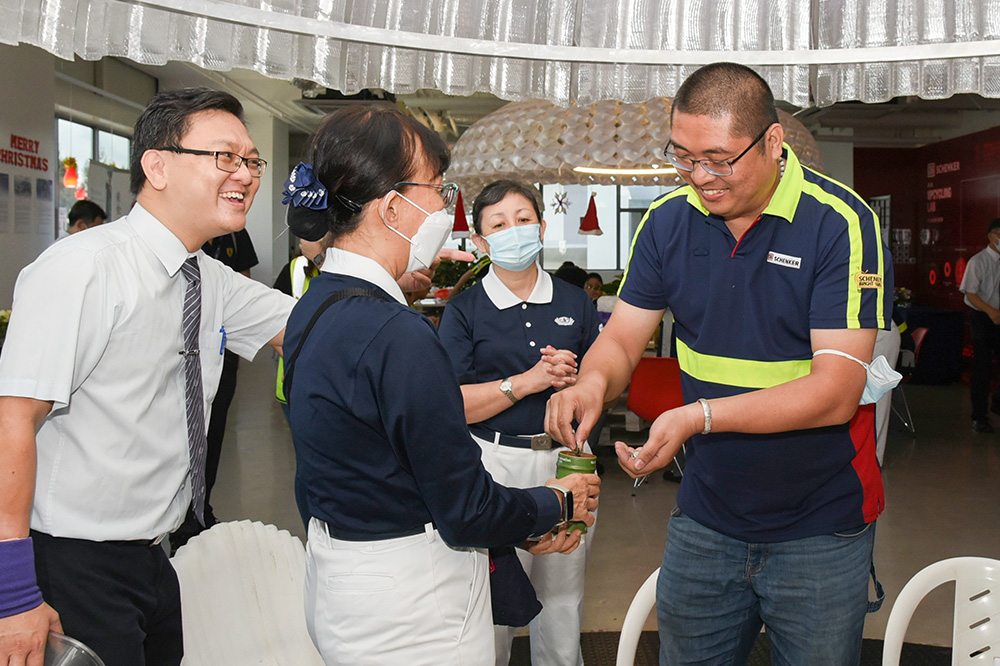
DB Schenker’s Supervisor, Mr Chen Cheng resonated with the Bamboo Bank Era story and proactively donated all his spare change after the sharing.


